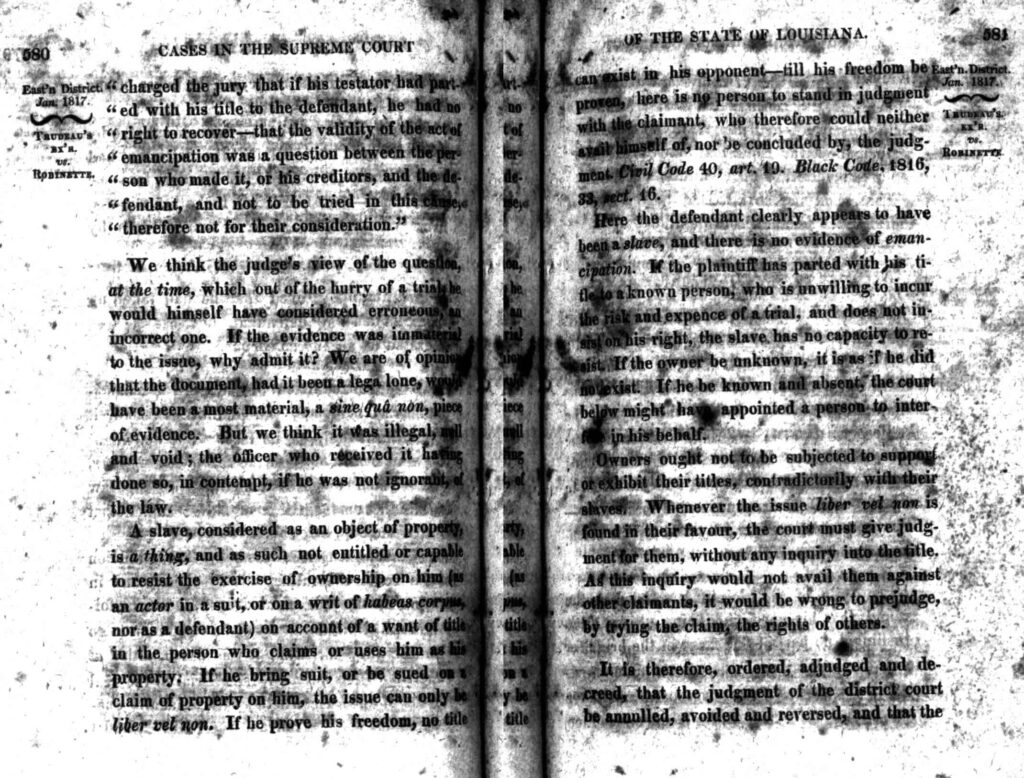In The Flow of Time – July 24, 2024
It’s the south, ante-bellum New Orleans. I’m digging into slave trades around Marie Laveau, and the Trudeau family – her father a free man of color, and his parentage, powerful white men at the pinnacle of society. I’m pretty much accustomed to the idea that my relatives were on the wrong side of both morals and history. And then I find this.
Circa 1788, a black woman owned by Zenon Trudeau, named Charlotte, has a daughter, Benedicte dite Robinette, who is of course also a slave. Charlotte obtains her freedom sometime before 1811. Her daughter has been sold and resold at least three times, I have the records from 1809 (she had a little son at the time), 1810, and 1811. On September 10, 1811, the final sale. Charlotte buys her daughter from her current owner for $900. YAY!!!!!
In 1815 René Trudeau, executor of his father Zenon’s estate, brings suit claiming that Robinette and her children are still his slaves. He has her arrested. She gets a lawyer, who gets her out on a writ of habeas corpus. It goes to trial.
The testimony at trial is that Robinette has, “been in the enjoyment of her freedom for years past.” She has a concubine/mistress relationship with a white man named Gardette (one of the people who owned her). She has her deed of emancipation dated 1812. She was 24 at the time. She wins at trial. René appeals to the State Supreme Court. I found the case, January of 1817.
René Trudeau’s claim is that the deed of emancipation is illegal on its face, because the law forbids emancipation of slaves younger than thirty. The Supreme Court of Louisiana grants René Trudeau’s appeal. The law is absolutely on his side. The emphasis is in the original source.
“A slave, considered as an object of property, is a thing, and as such not entitled or capable to resist the exercise of ownership.” “It is therefore ordered… that the plaintiff do recover the defendant Robinette and that she return to him as his slave.”
The database of Louisiana slave transactions ends in 1820. I have no idea what happened to Robinette. But I know who I feel like killing. It makes me want to vomit. I’m sufficiently disgusted, I’m done for the day.
Fucking racists.

EDIT: Two things. Later on I did track down Robinette, she appears in the 1840 and 1850 census as a free woman of color. So I’ll adapt the story to that fact. Second, her story affected me deeply. I made her story a major part of the narrative and–somewhere in here–decided that there was no way I could make the white planters in the family anything like protagonists. No, I had to write this from Marie’s point of view. My white relatives are, quite literally, the bad guys.




